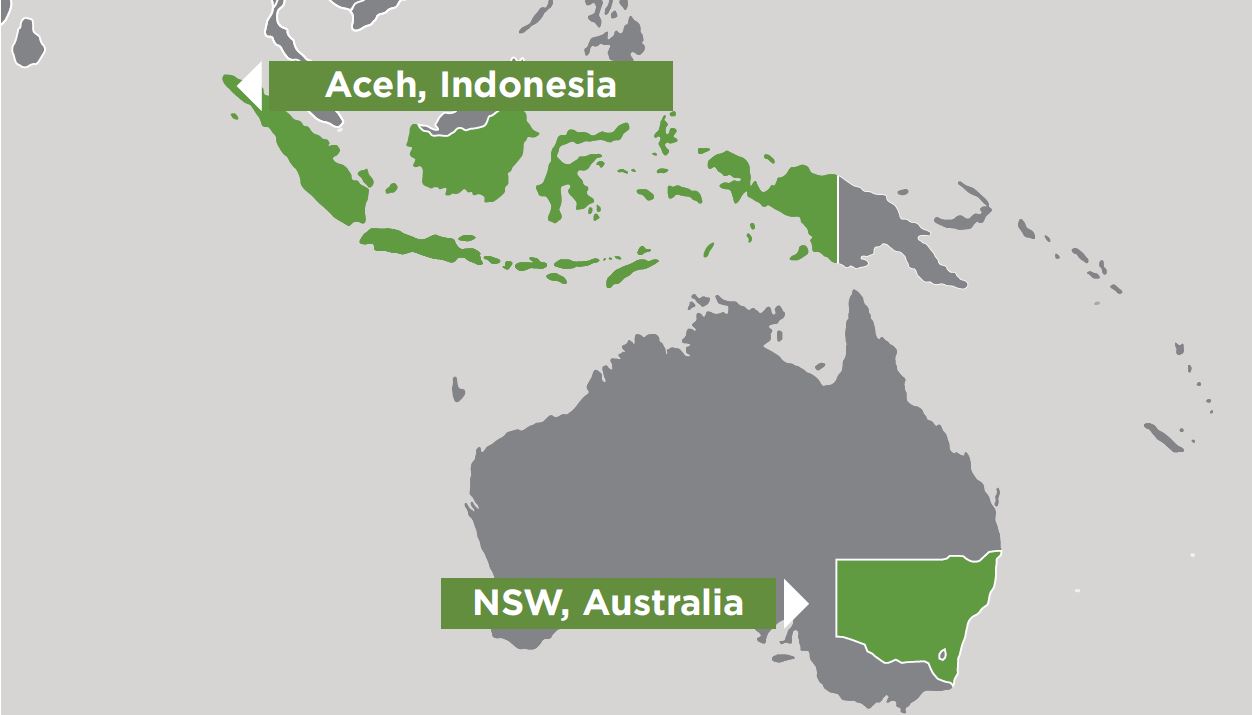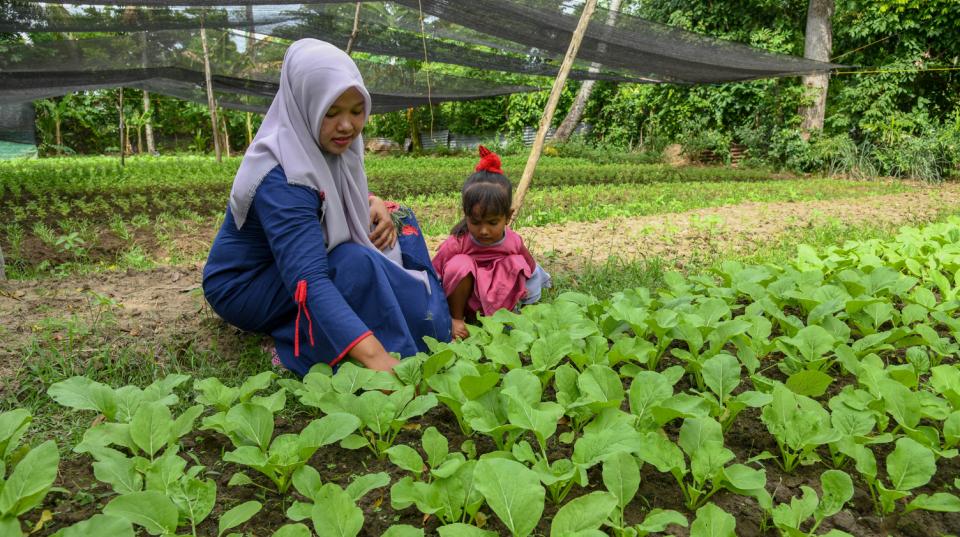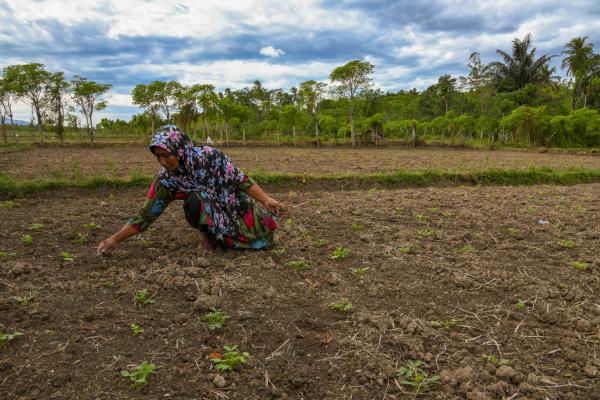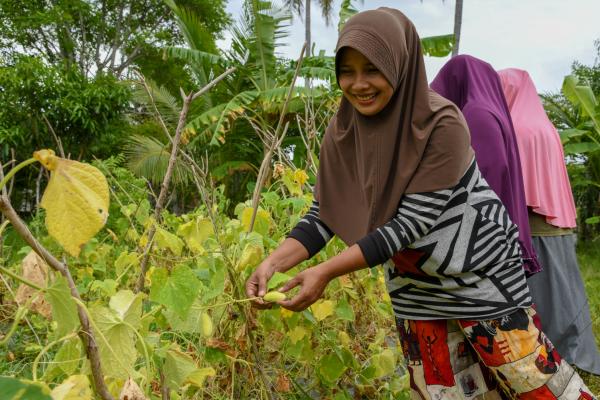Overview
This project aimed to increase the crop yields of dryland farmers in Aceh to help them make a better living.
Rural poverty in dryland farming areas is a major challenge to the development of the agriculture sector in Aceh.
Water and nutrient availability limit the productivity of dryland soil, but there is pressure to increase production. Due to lack of capital, farmers apply very little or no fertiliser to dryland crops, resulting in yields being significantly below their potential.
Previous research showed that growing vegetables and dry-season crops could increase family incomes. The current productivity of these crops is limited due to poor soil fertility and water availability.
These production constraints were addressed through research, demonstration, and training activities. The project also helps women farmers grow vegetables for family consumption and income.
Adoption of technologies developed through the project is expected to increase yields of key dryland crops by at least 20%. Farmer annual income is estimated to increase by an average A$300 per hectare as a result of higher yield and more crop diversity.
Project outcomes
- Research: New scientific data on dryland soils in Aceh, confirming main production constraints; two demonstration sites supporting 16 food crop farmers; evaluation of cropping systems; evaluation of soil and crop response to biochars.
- Capacity development: 43 local field extension officers, 16 food crop farmers and 34 university students trained to manage dryland soil to improve soil fertility and crop yield; students and researchers trained to use EM38 to measure soil electrical conductivity and soil water; increased research capacity of Unsyiah. Established research facility, technical training, publications, and capacity to access local funds.
- Gender: 725 women farmers supported in growing vegetables in dryland areas, most of whom report increased vegetable consumption for their family, improved skills and wellbeing; many have accessed local community funds.
- Partnerships: Collaboration between Balai Pengkajian Teknologi Pertanian Aceh and Unsyiah has increased through a joint research proposal.
- Benefits to Australia: value added to on-going work in dryland farming areas of the north-west slopes and plains of NSW; trials in NSW have shown benefits persist.









